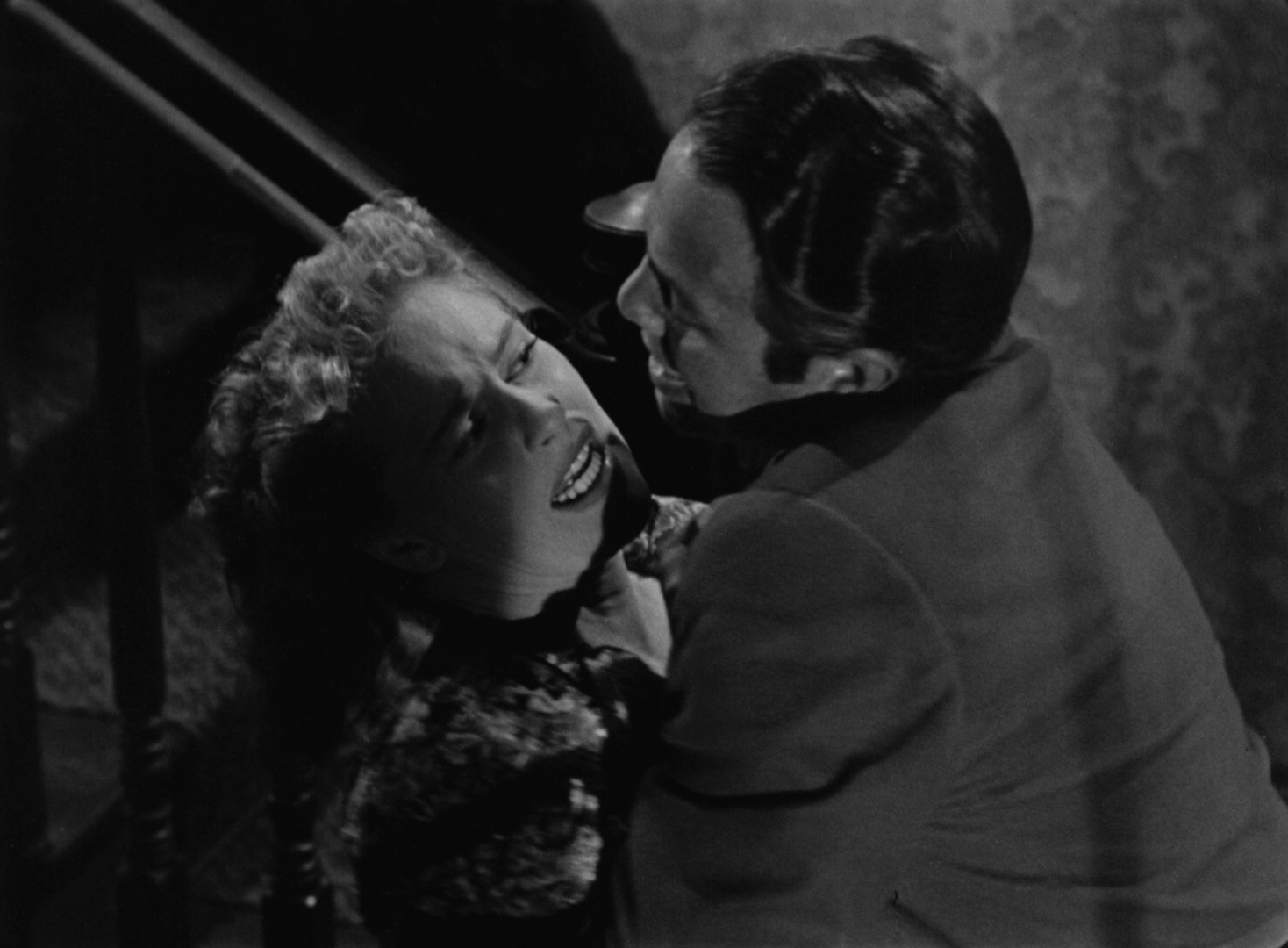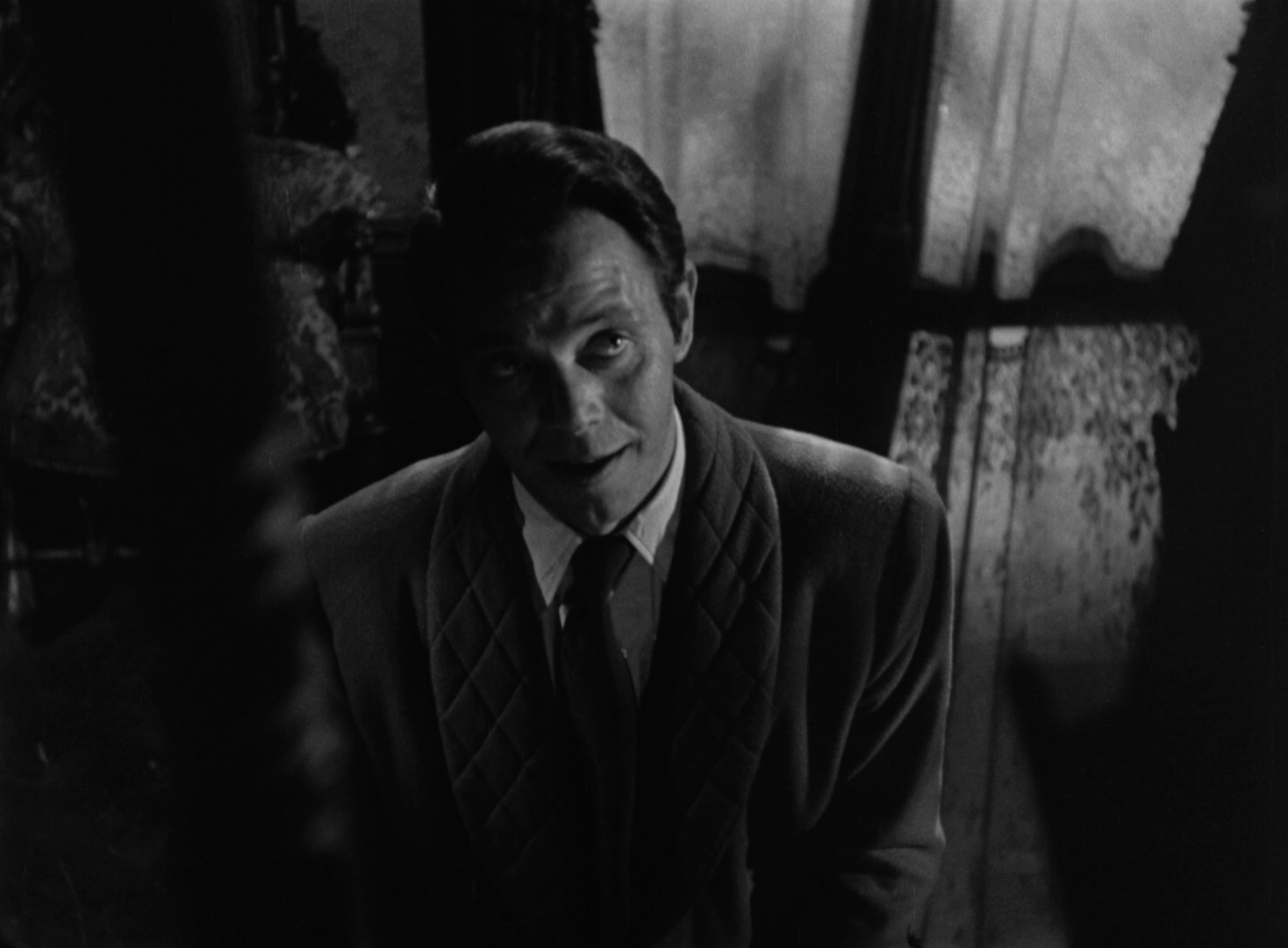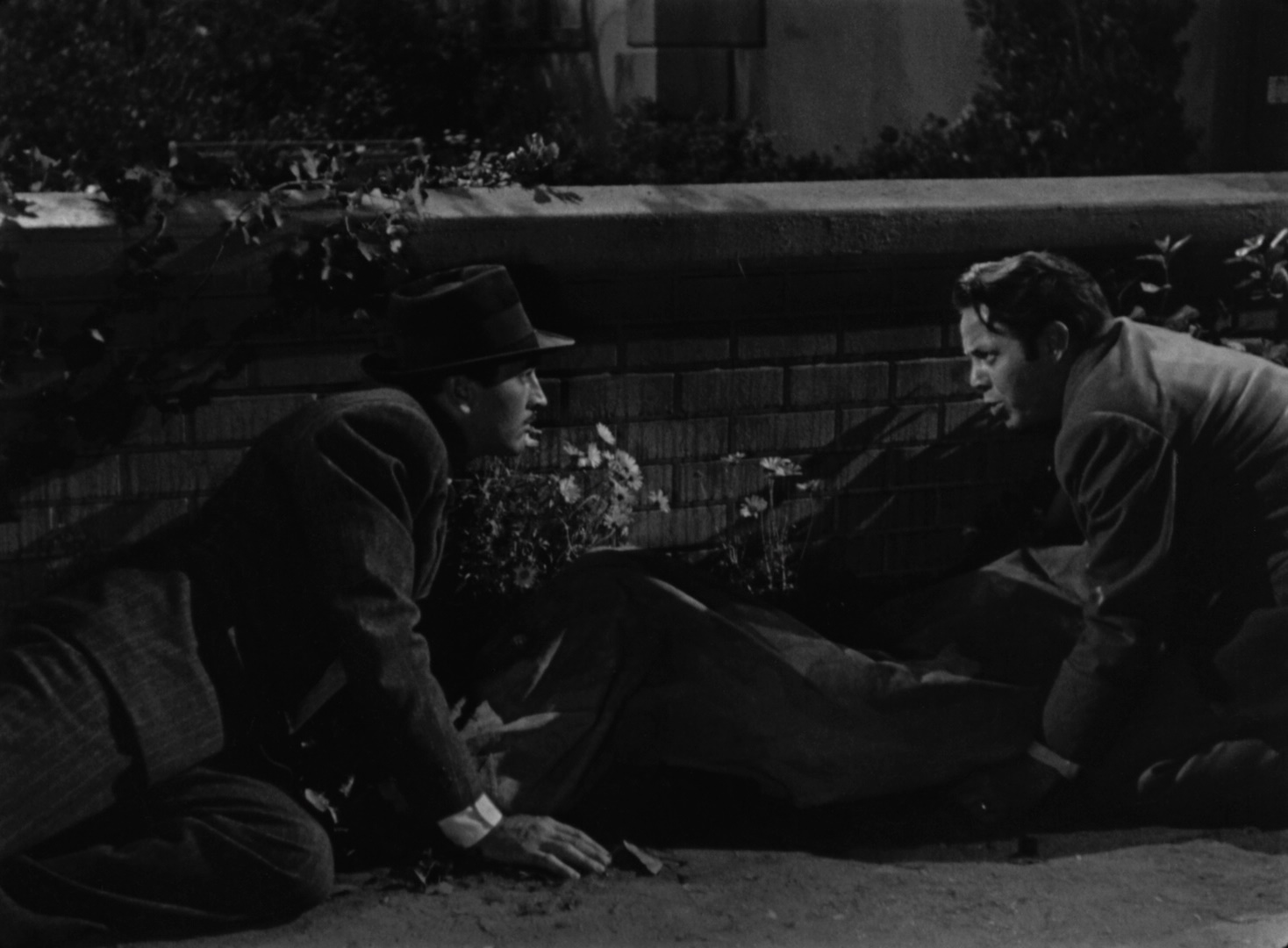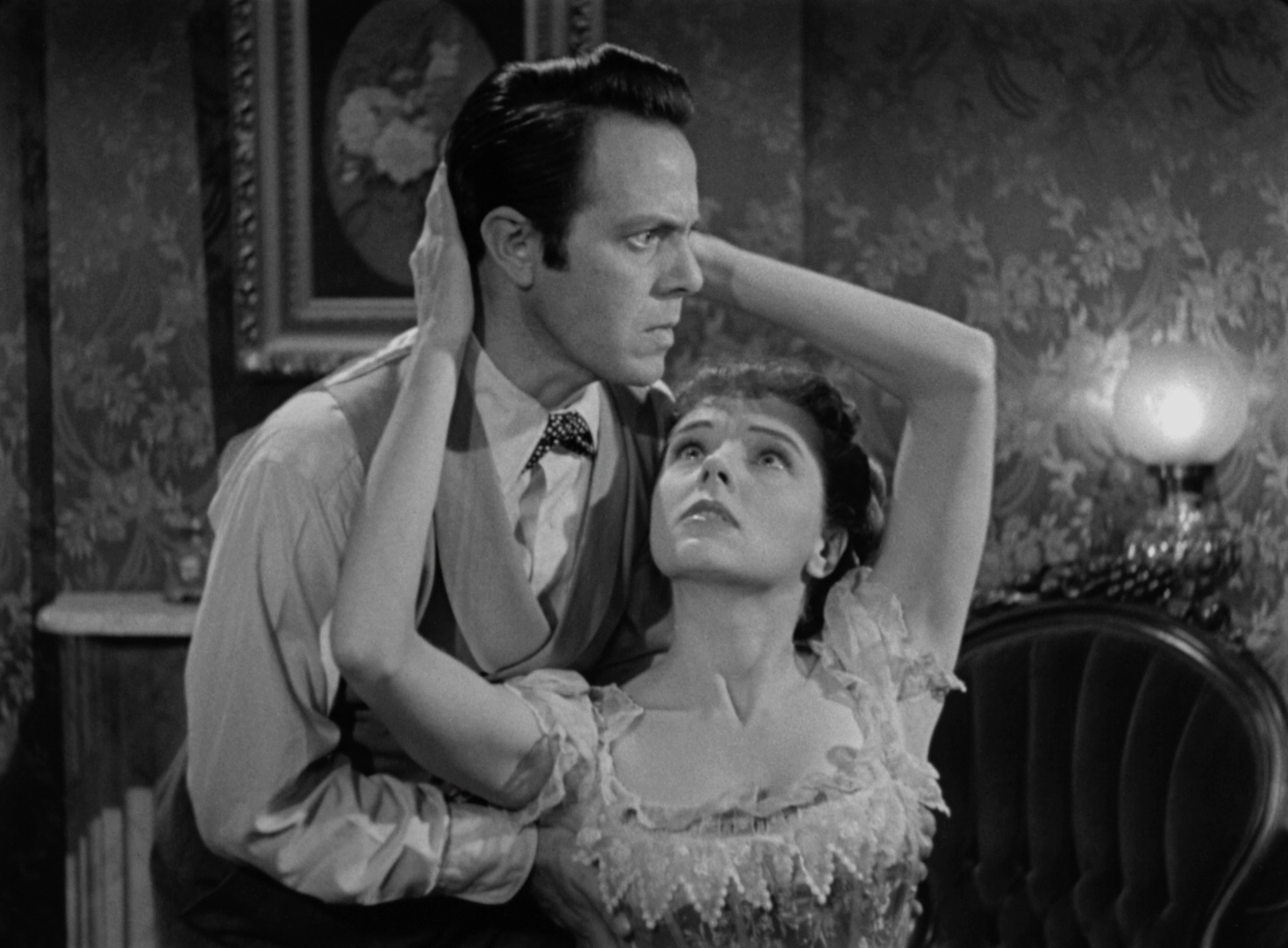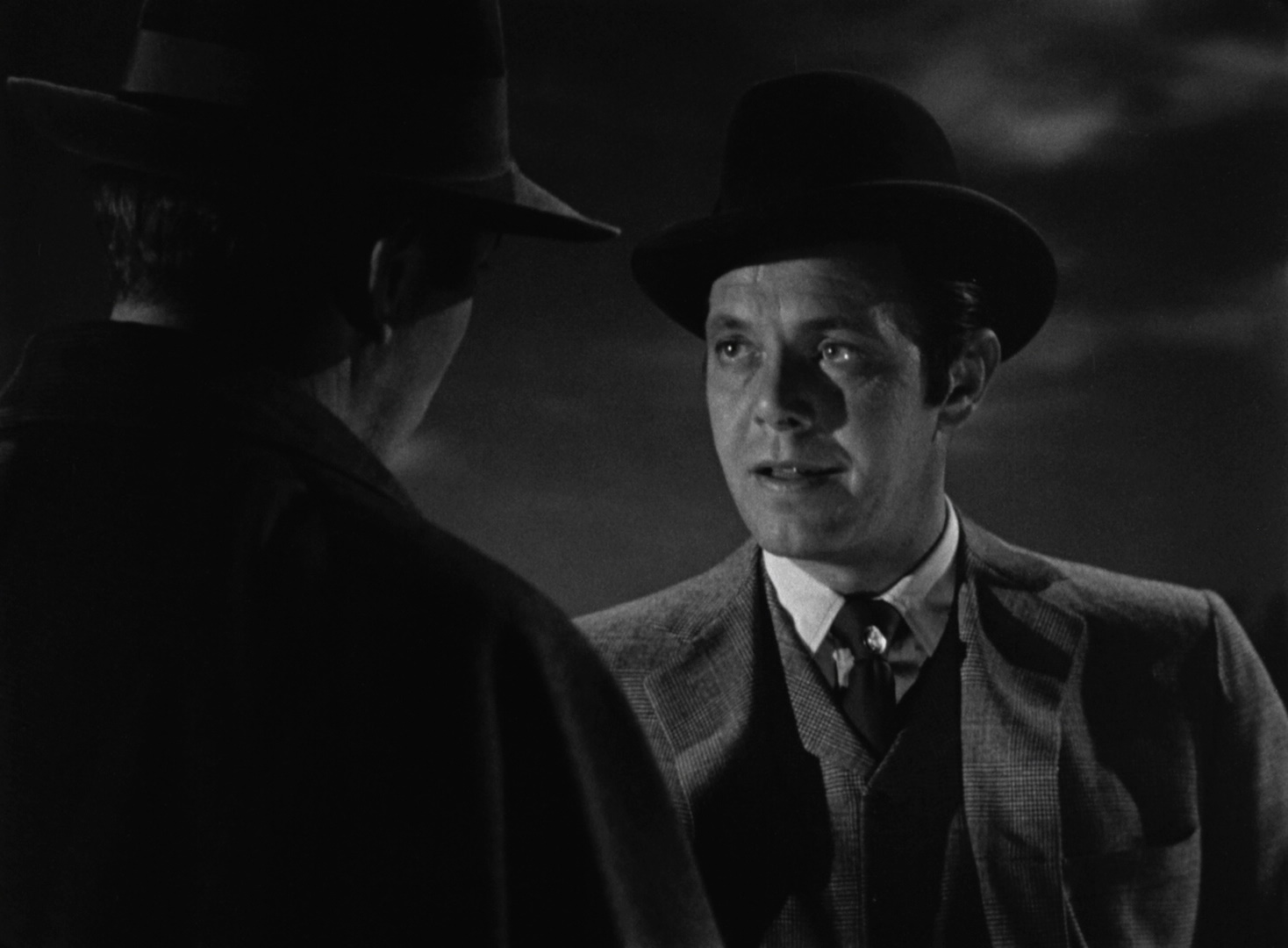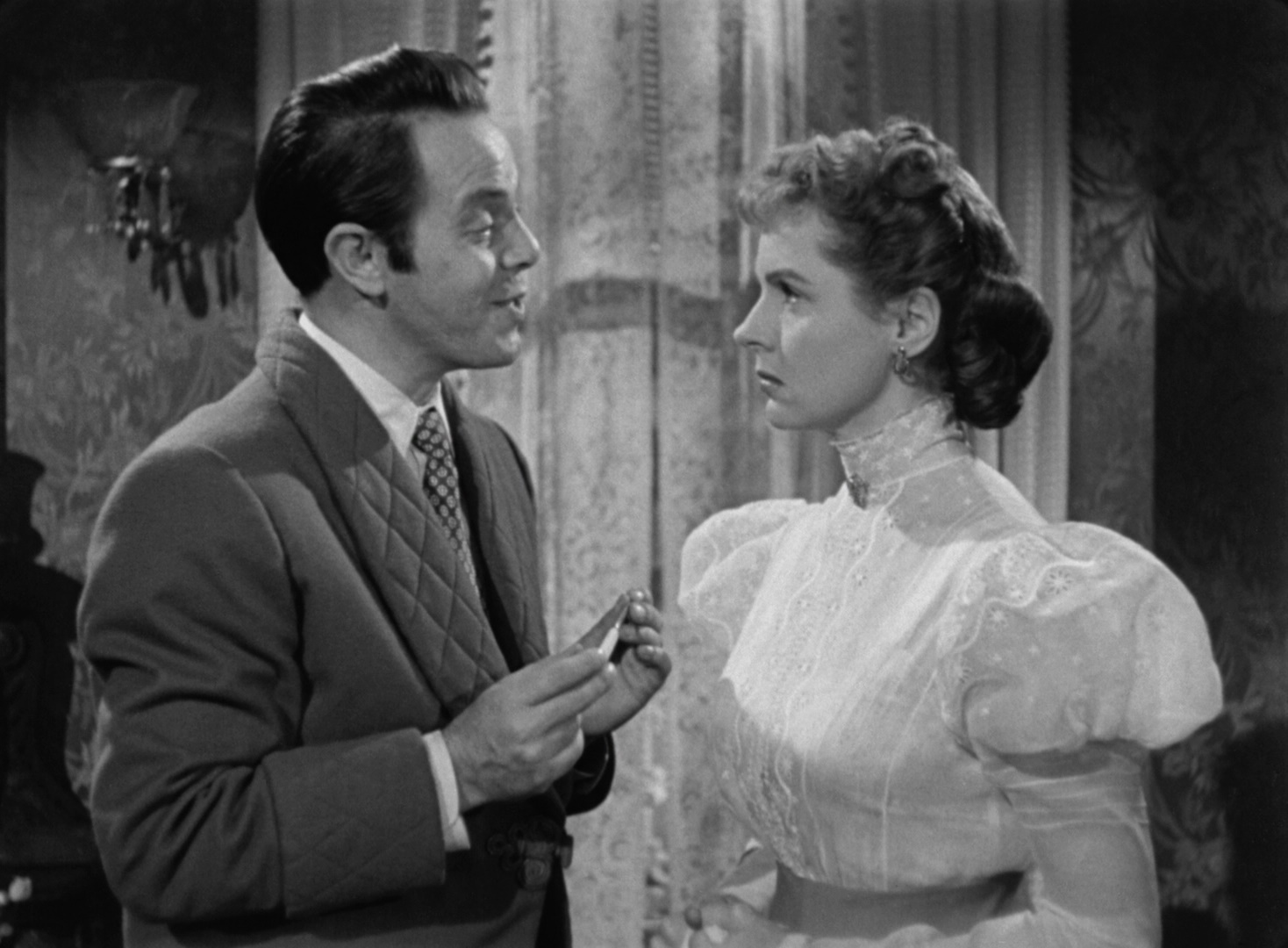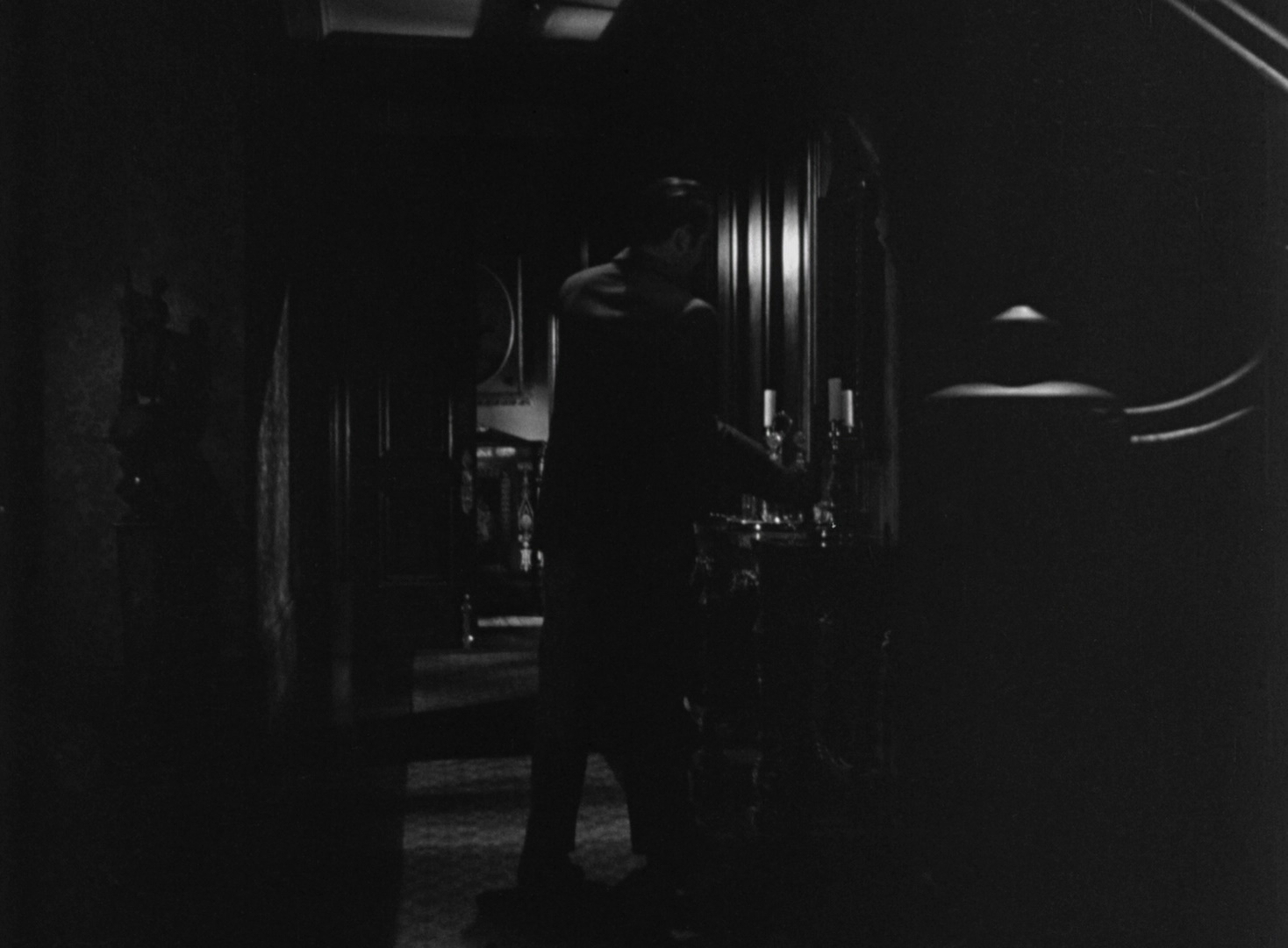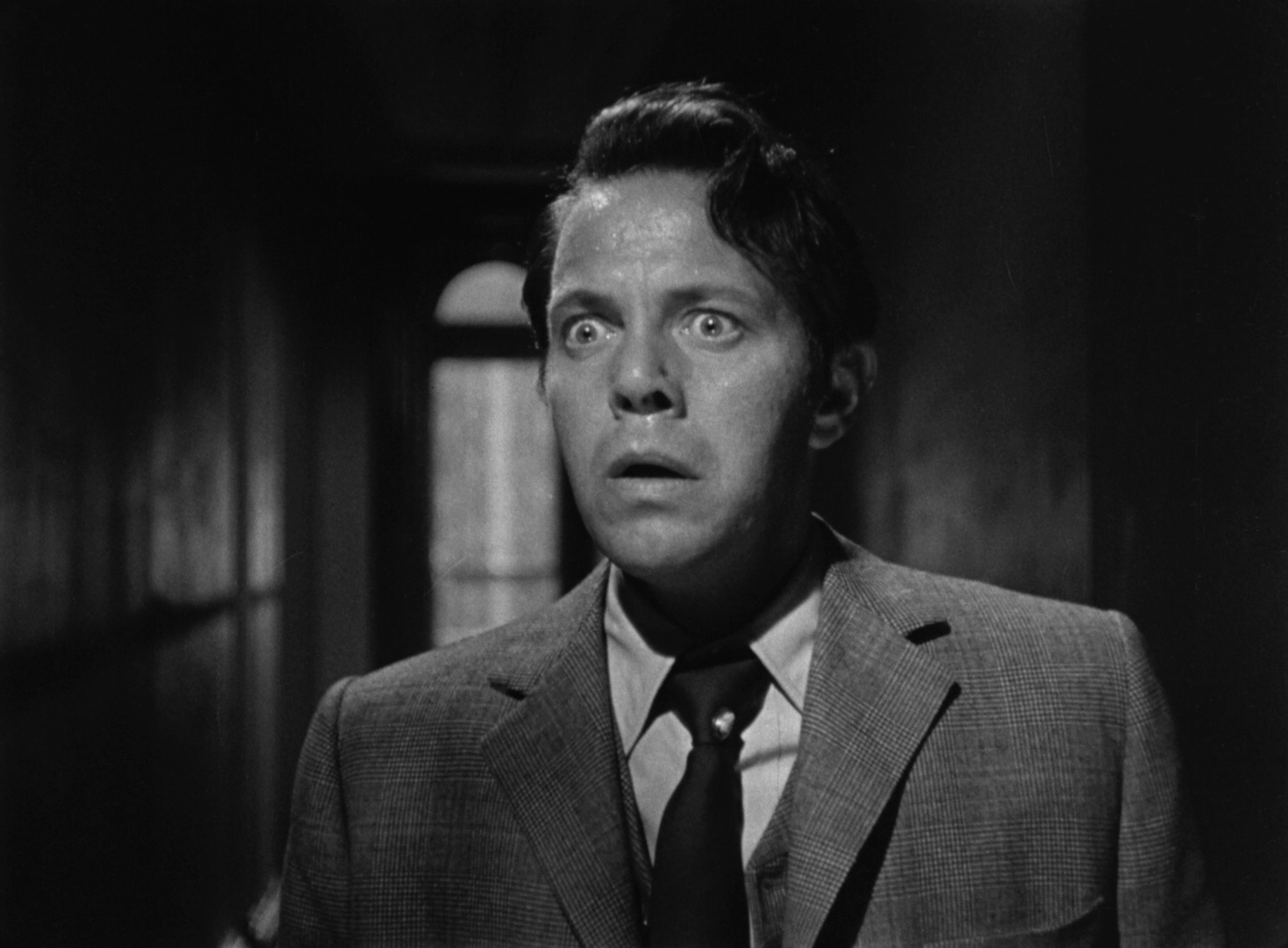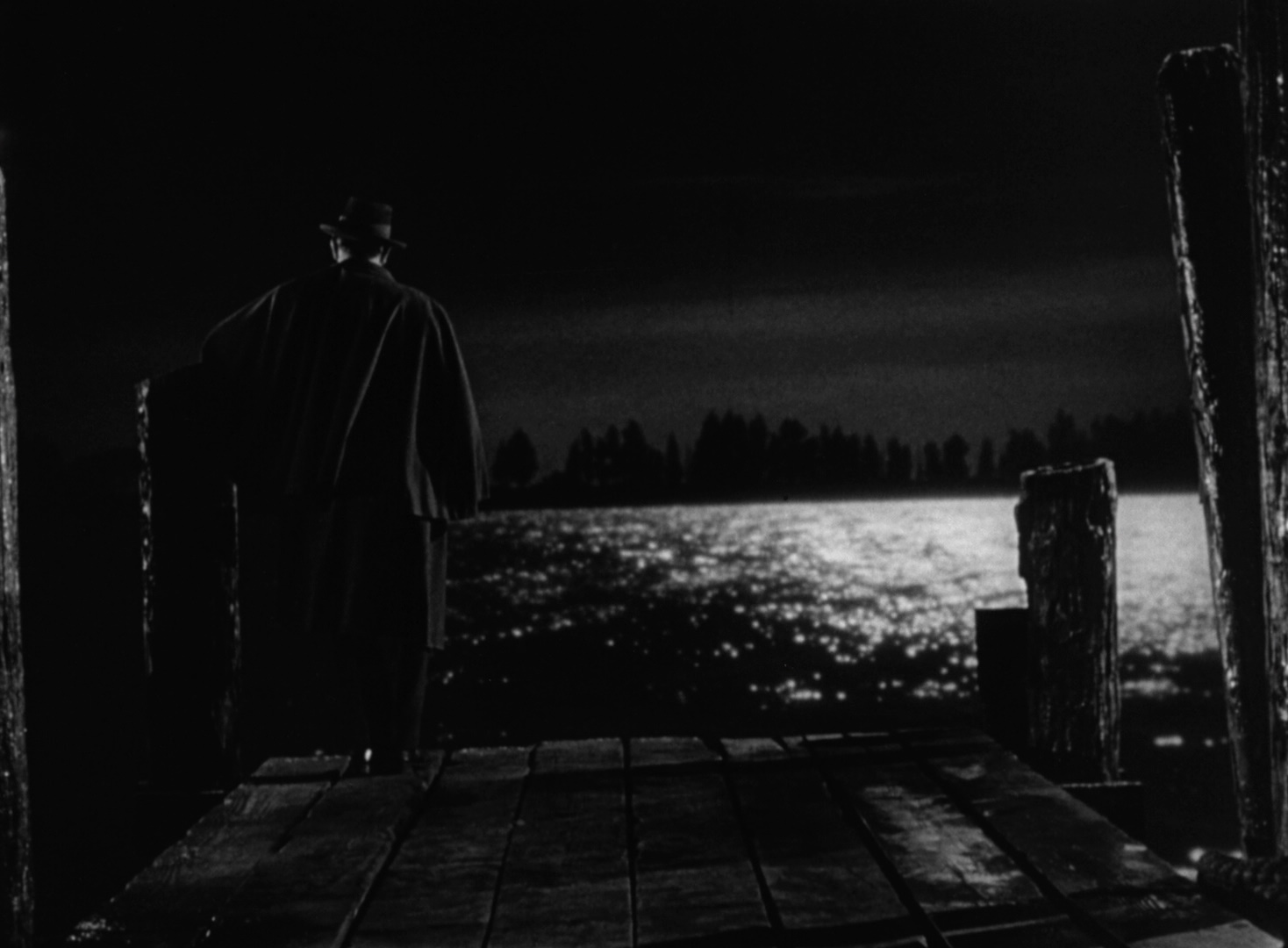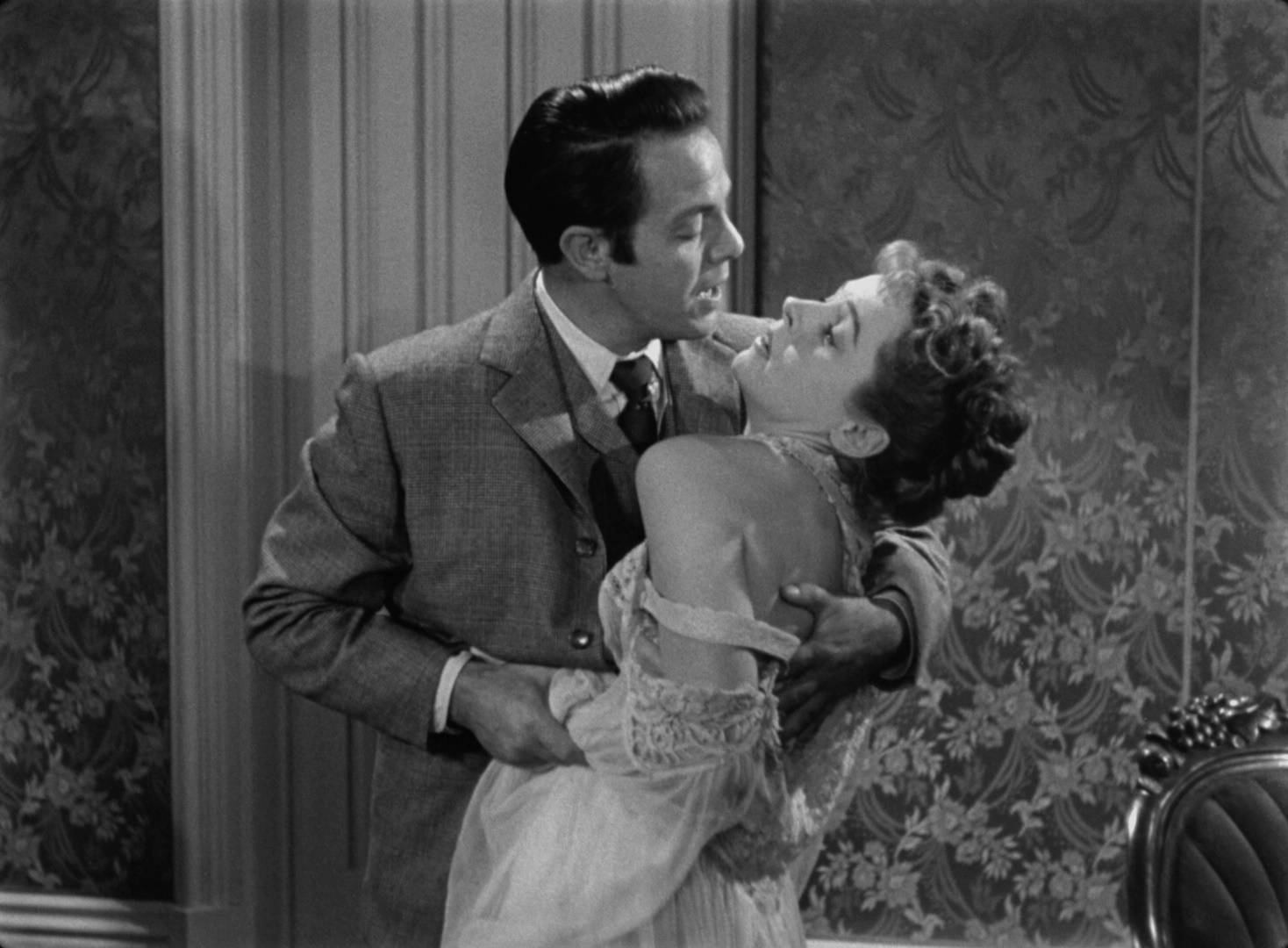| Reviews & Columns |
|
Reviews DVD TV on DVD Blu-ray 4K UHD International DVDs In Theaters Reviews by Studio Video Games Features Collector Series DVDs Easter Egg Database Interviews DVD Talk Radio Feature Articles Columns Anime Talk DVD Savant Horror DVDs The M.O.D. Squad Art House HD Talk Silent DVD
|
DVD Talk Forum |
|
|
| Resources |
|
DVD Price Search Customer Service #'s RCE Info Links |
|
Columns
|
|
|
House by the River
"You know, John, in spite of everything that's happened and everything that's going to happen, I want you to know that I've gained something."
"Gained something?"
"Yes. I was always afraid as a child. I didn't have the courage to do things. I was afraid of people: what they might say or think. Maybe that's why my writing wasn't good. You were right in that. But I'm not afraid anymore, and I've written something good — because it's real."
"It took a murder to do that."
"Doesn't the end justify the means?"
Don't be misled by that "murder as art" bravado. Just a few weeks earlier, failed novelist Stephen (Louis Hayward) was a sniveling wreck, pleading with his older brother John (Lee Bowman) to help him dispose of the young servant girl (Dorothy Patrick) he'd strangled to death. It wasn't a deliberate act to further Stephen's writing. This drunken lech forced himself onto Emily, choked the poor girl to silence her cries, and discovered too late that he wouldn't be able to have his way with her after all. Stephen seems to have some gift as a storyteller, however. He manipulates John into helping him dump her body into the river. He successfully frames the late Emily as a thief and harlot. He capitalizes on his newfound fame-by-association to sell more books. Indeed, Stephen is inspired to pen a new novel: one revolving around a pretty servant girl, a wood sack, and a river where dead things can't help but wash downstream once again. And as for his wife, Marjorie (Jane Wyatt)? His brother? Emily's grieving parents? Collateral damage. Scarcely worth a fleeting thought. That is, unless they stand in the way of his success or freedom...
House by the River wisely doesn't limit itself to just one of the brothers as its primary focus. It instead revels in the decisions made by these two very different characters – and how profoundly they're transformed over the course of the film. Stephen is hardly a man on the precipice who finds himself corrupted by a femme fatale. It's apparent that he was always a bad seed, to the point that his parents willed their fortune to his brother instead.
From the outset, there's nothing the least bit sympathetic about Stephen as a character. Even before his lust proves fatal, his lascivious leers at Emily made my skin crawl. Once her body has been disposed of, however briefly, Stephen rarely fears discovery. Though he is occasionally haunted by the spectres of his crime, Stephen is more often emboldened, and his arrogance, manipulativeness, and, yes, further willingness to kill make for a fascinating villain. As with Brandon and Phillip in Rope, he feels as if he deserves to get away with it. She was a servant girl – as Alexandra Heller-Nicholas notes in her commentary, effectively indistinguishable to him from furniture – while he's a man of wealth and social status. As repulsive as Stephen so often is, I'll admit that my heart skipped a beat as Emily's body inevitably washed downriver. It's much the same as that beat in Psycho when Marion's car stops sinking, and I realize that there's a part of me that's afraid that Norman will be discovered.
John is guided by the right instincts – brother or no, his first impulse upon discovering the murder is to contact the authorities – but allows himself to yet again be manipulated. He's not a gallant hero; he's an accessory after the fact. As much as we crave Stephen to face justice, it's difficult to imagine a scenario in which he's imprisoned, Emily's undeservedly tarnished name is cleared, and John remains free. Their fates are intertwined, and, adding a compelling layer of complexity, that weighs as heavily on John as it does upon us as viewers. He can't eat. He seethes with anger at his own help. The most morbid thoughts can't help but seize hold.
Whereas the black sheep of the family seems to get most everything he wants, John's life has proven far less fulfilling. He actually works for a living rather than coasting on his inheritance. He's suffered no small amount of derision due to his limp. He has sacrificed much for his brother, having bailed him out time and again for decades, along with parting with a fair amount of the family fortune so that Stephen can live comfortably. John loves his brother's wife more than Stephen ever could, and that unspoken affection is, perhaps, mutual. His transformation is every bit as compelling as that of Stephen, and I'm left with that rare and wonderful feeling of having no idea how events could possibly end as well as they should for him.
House by the River transcends the lean budget afforded to director Fritz Lang by Republic Pictures. Though the seams show at times – the grand exterior of Stephen and Marjorie's estate is a painted backdrop; the rear projection of the two brothers on a dock at the dead of night is wildly unconvincing – this remains a brilliantly photographed film. As House by the River draws from visual languages both noir and Gothic, the interplay between light and shadow is every bit as masterful as one would expect, especially given Lang's direction. Its recurring visual motifs are also inspired, particularly shadow-blanketed descents down a staircase. I appreciate that the storytelling is rather straightforward, shying away from flashbacks and not leaning excessively on twists or shocking revelations. The complexity is rooted instead in the film's characters and relationships.
This is such a well-crafted film that it's startling to think that House by the River went largely unseen for so many decades. Those days, thankfully, are behind us. Whatever legal entanglements were getting in the way have been resolved. The best remaining elements have been lovingly restored. And, of course, we've been graced with a terrific release on Blu-ray, coinciding nicely with the film's seventieth anniversary. Highly Recommended.
Video
Breathing life back into House by the River was clearly no small feat. The restoration is credited to Lobster Films, whose 2018 Blu-ray release in turn acknowledged the additional contributions of the British Film Institute, the Centre national du cinéma et de l'image animée, and, yes, Kino Lorber. The care and craftsmanship invested in this remaster – scanned in 4K and finished in 2K – is apparent. This is a consistently filmic presentation, something that can't be said about the oversharpened DVDs of years past. Though the occasional thin, vertical line is visible, there is no weathering or damage of any real consequence. The image doesn't flicker to the point of distraction. Fine detail is, at times, striking:
Admittedly, House by the River isn't the crispest 1080p presentation of a film of this vintage that I've come across:
Shadow detail too leaves much to be desired at times, which is especially noticeable given that black levels aren't particularly deep:
This is presumably in large part a limitation of the surviving elements, generations removed from the original camera negative. A couple of other visually lackluster moments appear to date back to production, such as the chunky grain dockside as the climax draws near and Stephen's out of focus hunt for a floating corpse.
I'm generally pleased with the AVC encode, although something about the authoring results in the far edges of the frame saddled with extremely thin, vertical stripes. And though we're literally talking about a couple of pixels on the left and right, these bars are so much brighter than the body of the image that they draw greater attention to themselves than their very modest width might suggest.
Please don't mistake my attempts at being thorough as lambasting this presentation, though. House by the River hasn't simply been remastered; it's been rescued. And though this Blu-ray release doesn't rank among the most visually dazzling films noir that Kino Lorber Studio Classics has brought to Blu-ray, what they've delivered here is a more than worthy presentation and remains well-worth seeking out.
House by the River arrives on a dual-layer Blu-ray disc at its original aspect ratio of 1.37:1.
Audio
I'll keep my comments about House by the River's 16-bit lossless soundtrack much more concise. This is a perfectly robust monaural DTS-HD Master Audio track, devoid of any pops, clicks, dropouts, or intrusive background noise. The film's dialogue is reproduced cleanly and clearly, not marred by any undue clipping or sibilance. George Antheil's score sounds marvelous as well. I'm not left with any complaints or concerns whatsoever. Well done.
Also included are an audio commentary and a set of English subtitles.
Extras
- Audio Commentary: Alexandra Heller-Nicholas contributes an extraordinary commentary track. Among many other highlights too numerous to list, she explores House by the River's disinterest in a single point of identification, the ways in which Lee Bowman forever reshaped the way businesses and politicians communicate, and a deep dive into Fritz Lang's filmography without drawing undue thematic connections to his autobiography. Given Heller-Nicholas' background in writing about gender politics and the representation of sexual violence in film, she's able to offer what is by far the most substantial analysis yet of House by the River's opening sequence – a scene that is too often glossed over or misrepresented. It's a conversation that certainly impacts the way I now view the film, such as how Lang visually conveys that Emily is viewed as property rather than a human being, as well as this pivotal role originally intended to have been portrayed by a woman of color. An essential listen.
- Interview (8 min.; SD): In an interview carried over from Kino Lorber's 2005 DVD release, the legendary Pierre Rissient speaks about his mighty efforts in reviving House by the River as well as his conversations with Fritz Lang himself about the film. Among the topics of conversation are how precisely Lang could recall the opening sequence, what a challenge it proved to be to locate a print for screening, the struggle of untangling the rights to the film, and how closely novelist A.P. Herbert's writing setup mirrors that depicted on-screen.
Also included are trailers for The Woman in the Window, Boomerang (also with Jane Wyatt), The Spiral Staircase (featuring another Mel Dinelli screenplay), The Queen of Spades, and The Paradine Case.
The Final Word
Fritz Lang's House by the River undeservedly languished in obscurity for decades, long posing a challenge to discover even to those making a concerted effort to seek it out. That, thankfully, is no longer the case. And not only is this recent restoration now available in high definition the world over, but this long unseen and underappreciated film looks better than it very likely ever has. Highly Recommended.
|
| Popular Reviews |
| Sponsored Links |
|
|
| Sponsored Links |
|
|
| Release List | Reviews | Shop | Newsletter | Forum | DVD Giveaways | Blu-Ray | Advertise |
|
Copyright 2024 DVDTalk.com All Rights Reserved. Legal Info, Privacy Policy, Terms of Use,
Manage Preferences,
Your Privacy Choices | |||||||









